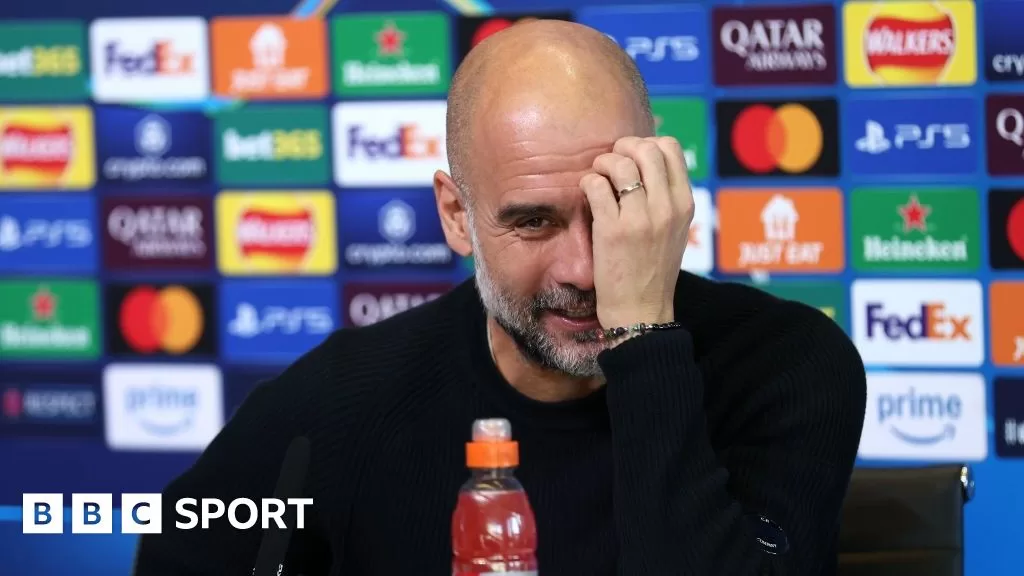Despite the comfort blanket of 18 trophies in his eight full seasons at City, Guardiola reminds journalists every so often at media conferences that if he doesn’t deliver results, he risks losing his job just like any other manager.
At times, it feels as though Guardiola is saying it to motivate himself.
He did it again on Monday as the search continued for a solution to City’s dip in form.
Guardiola’s demeanour suggests the quest is occupying most of his thoughts.
When he arrived for his news conference to look ahead to Tuesday’s Champions League encounter with Dutch side Feyenoord, Guardiola was a bit out of breath. It felt like he didn’t really want to be there.
But sometimes, a small trigger can change his mood.
Asked if he was considering any fundamental changes to his approach – which he clearly will not implement – Guardiola’s initial reaction was curt.
“Why?” he asked back. Because of the five defeats, came the response.
And so Guardiola explained why it would not be happening.
At times like that, it is best to just sit back and wait for him to finish. There is no pause that allows any intervention.
That single answer lasted seven seconds short of three minutes.
In condensed form, Guardiola said he had too many injured players. He needed some of them back and then those players needed to return to form. Good or bad, he said, nothing lasts forever and this period will eventually pass. While the 4-0 defeat by Tottenham looked bad, his side had 26 shots and according to their xG, they should have won. This fact, he feels, demands less change, not more.
Then there was an explanation of the disruption the injuries have caused. No Rodri. No opportunity to pick central defenders Manuel Akanji or John Stones as a holding midfielder instead, with Ruben Dias behind. So the task falls to Ilkay Gundogan, who, Guardiola observes, “is our best guy running into [the opposition] box”, not City’s own.
“It’s not because they are soft, lazy or don’t want it,” Guardiola concluded. “What we have to do is create more and concede less.”
It sounds simple – but there is uncertainty.
Guardiola cannot be sure what comes next because he has never had to dig his way out of this situation before. He may have had bigger, more individual problems around the club to deal with, but in terms of actually winning football matches, he is in unchartered territory.
And the media is not quite sure how to deal with it because, largely, for six out of the past seven seasons, it has become accustomed to telling the tale of how brilliant Guardiola and his team is.
No-one wants to say they are terrible in the way, say, they have with Manchester United, because recent history shows City can put together a long winning run that will carry them to another title, no matter how unlikely that currently appears.
On the face of it, Feyenoord at home is exactly the kind of game they need just now.
In seven previous games against Dutch sides, City have lost once, against Ajax in Amsterdam in 2012. In 2017, Guardiola’s team played Feyenoord twice and beat them, 4-0 away and 1-0 at home, by which time qualification from the group phase of the Champions League had already been secured.
With a trip to Liverpool in the Premier League looming on Sunday, a sixth successive defeat is almost unthinkable. But Guardiola is not looking too far ahead.
“One day we’re going to win a game and our mind will be clear,” he said. “I hope Tuesday, if not [then] Sunday. If not, the next one.”
The pressure is not getting to Guardiola yet. But he does need a positive result to ease the burden he places on himself.
